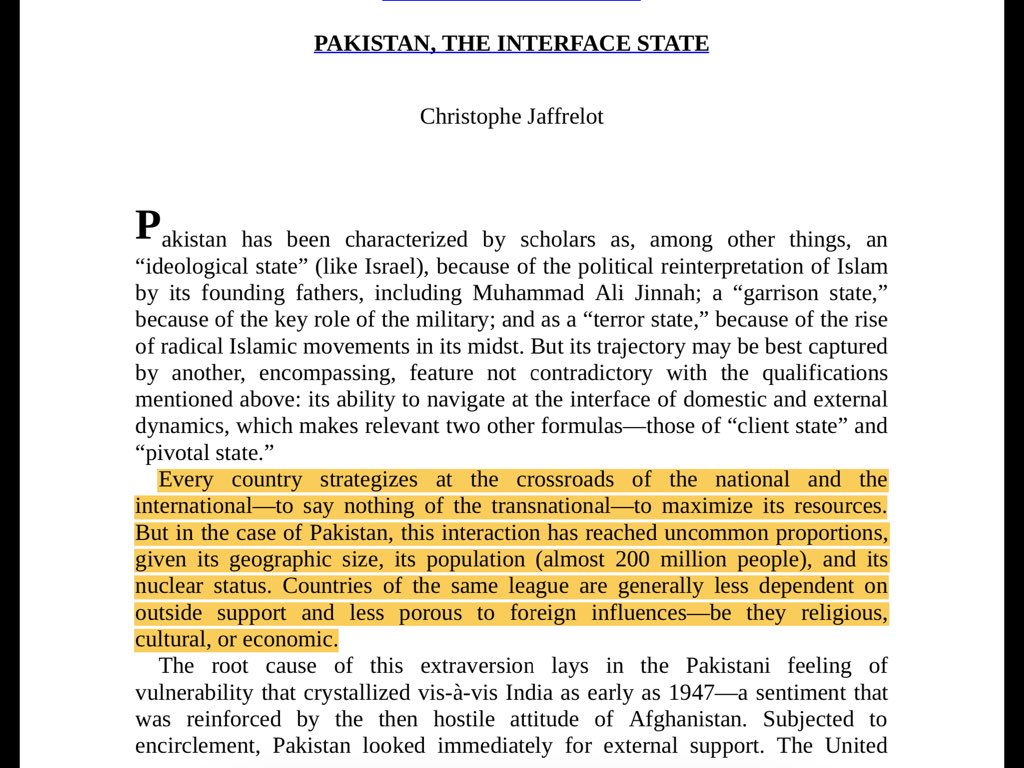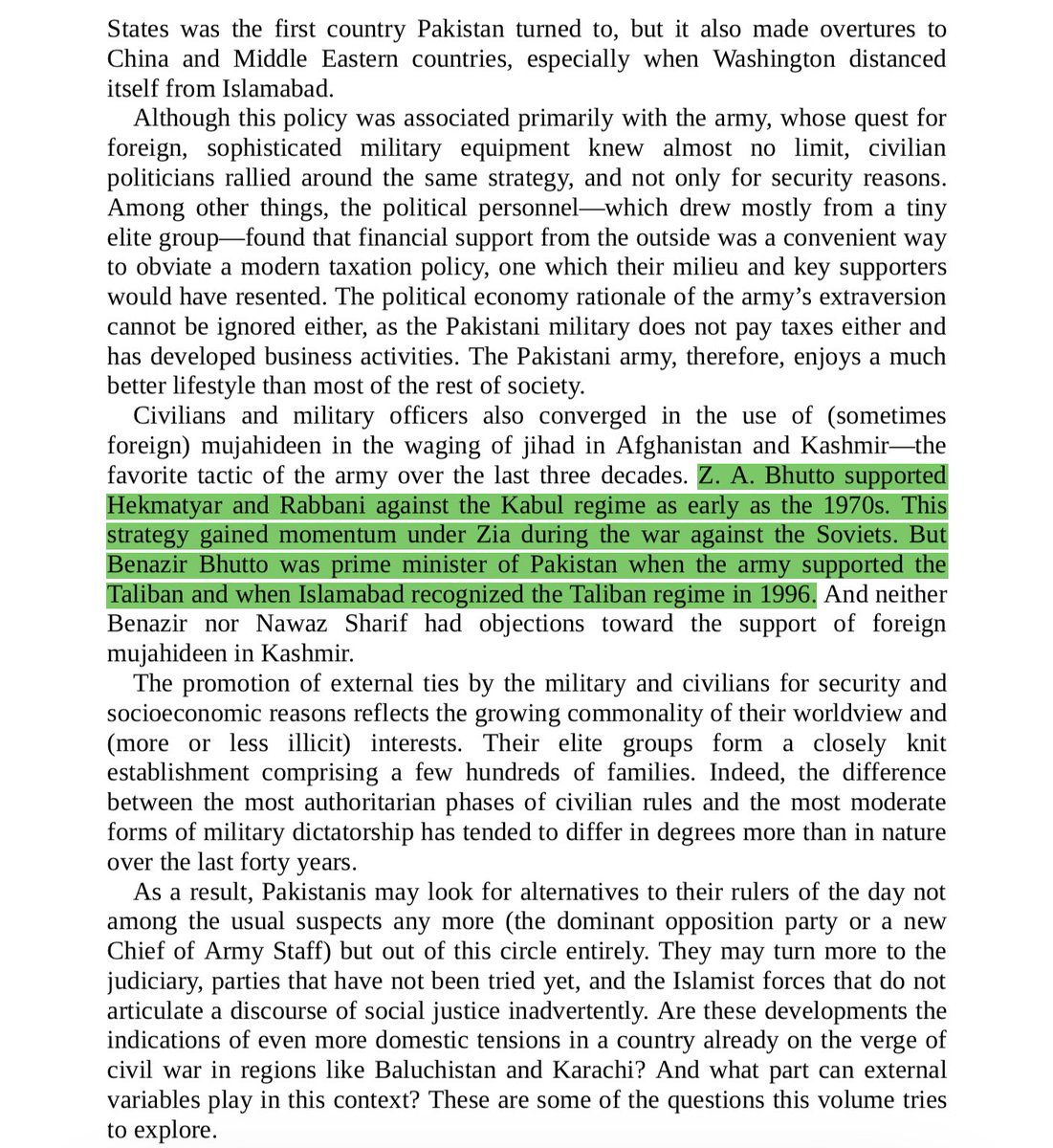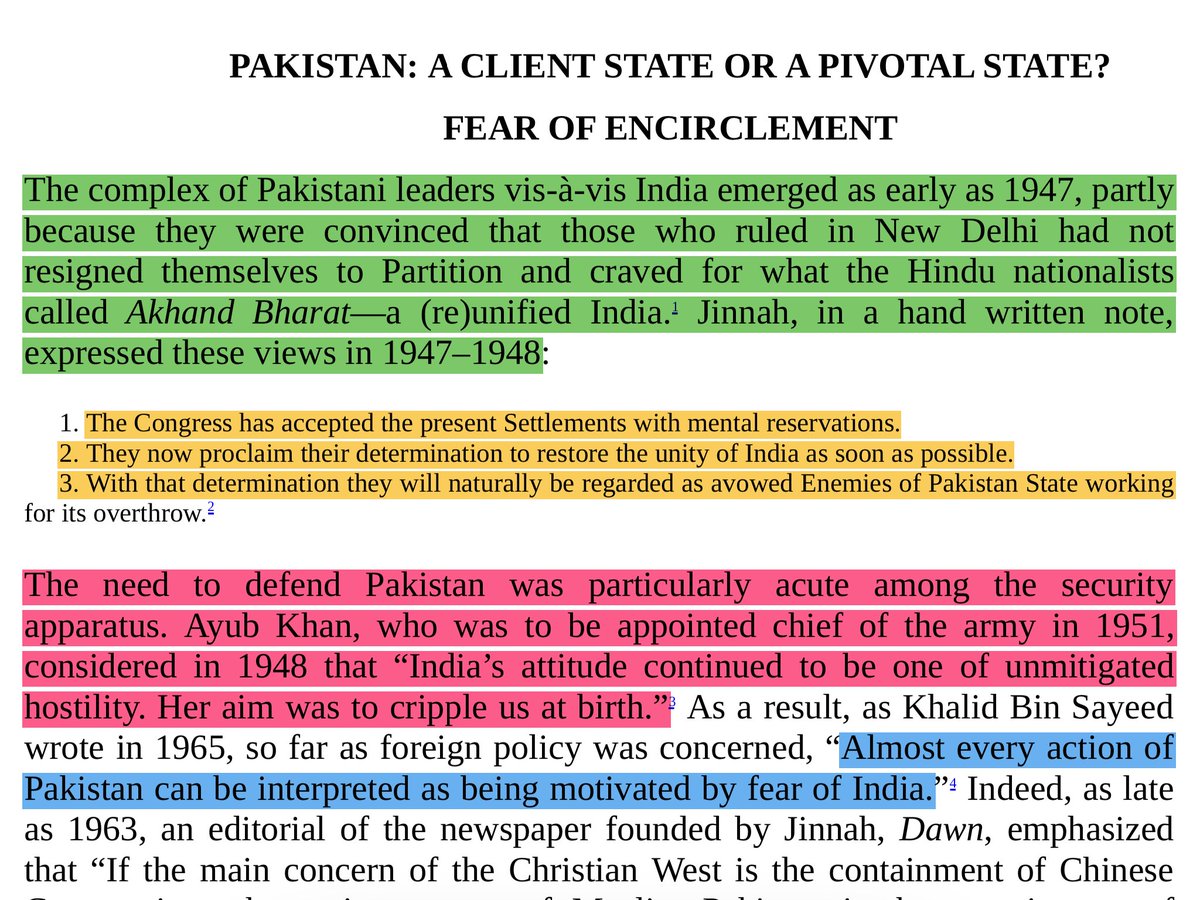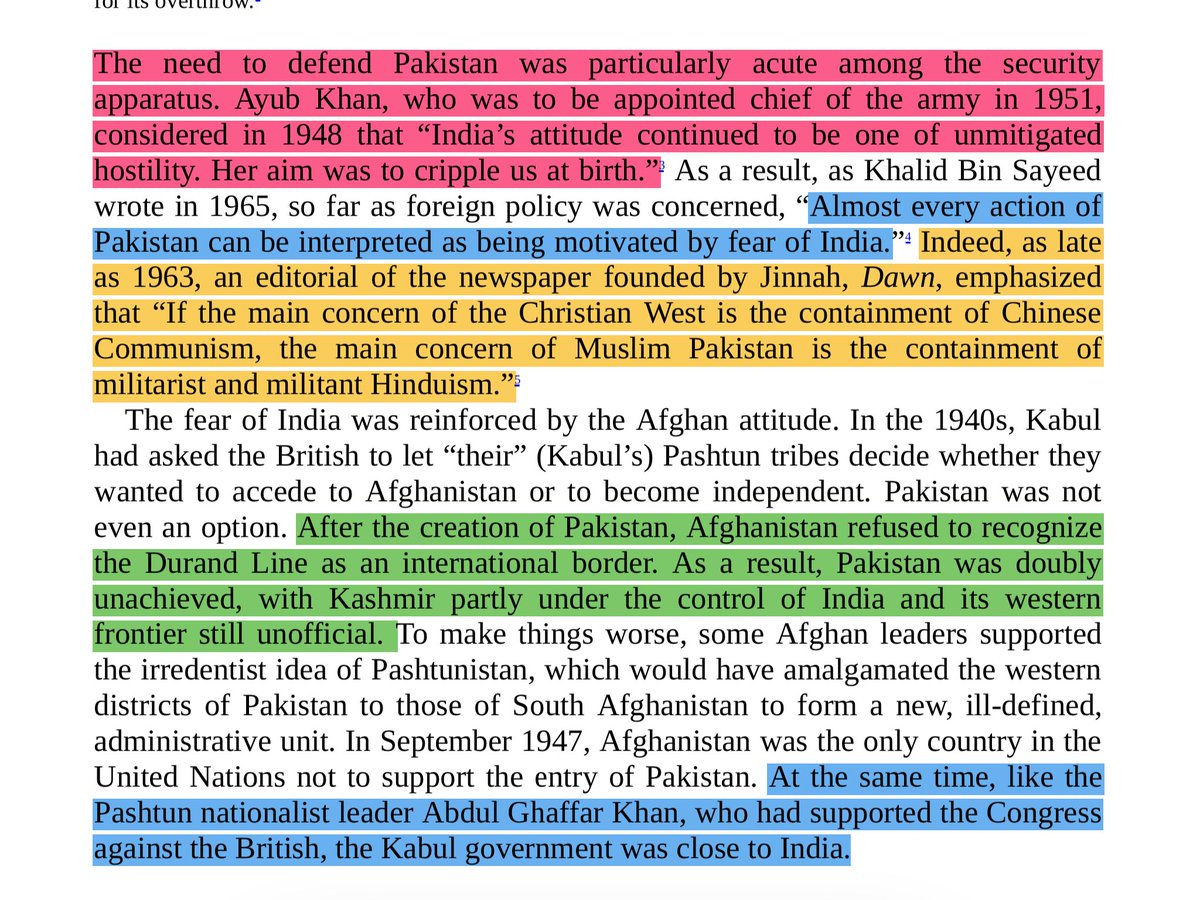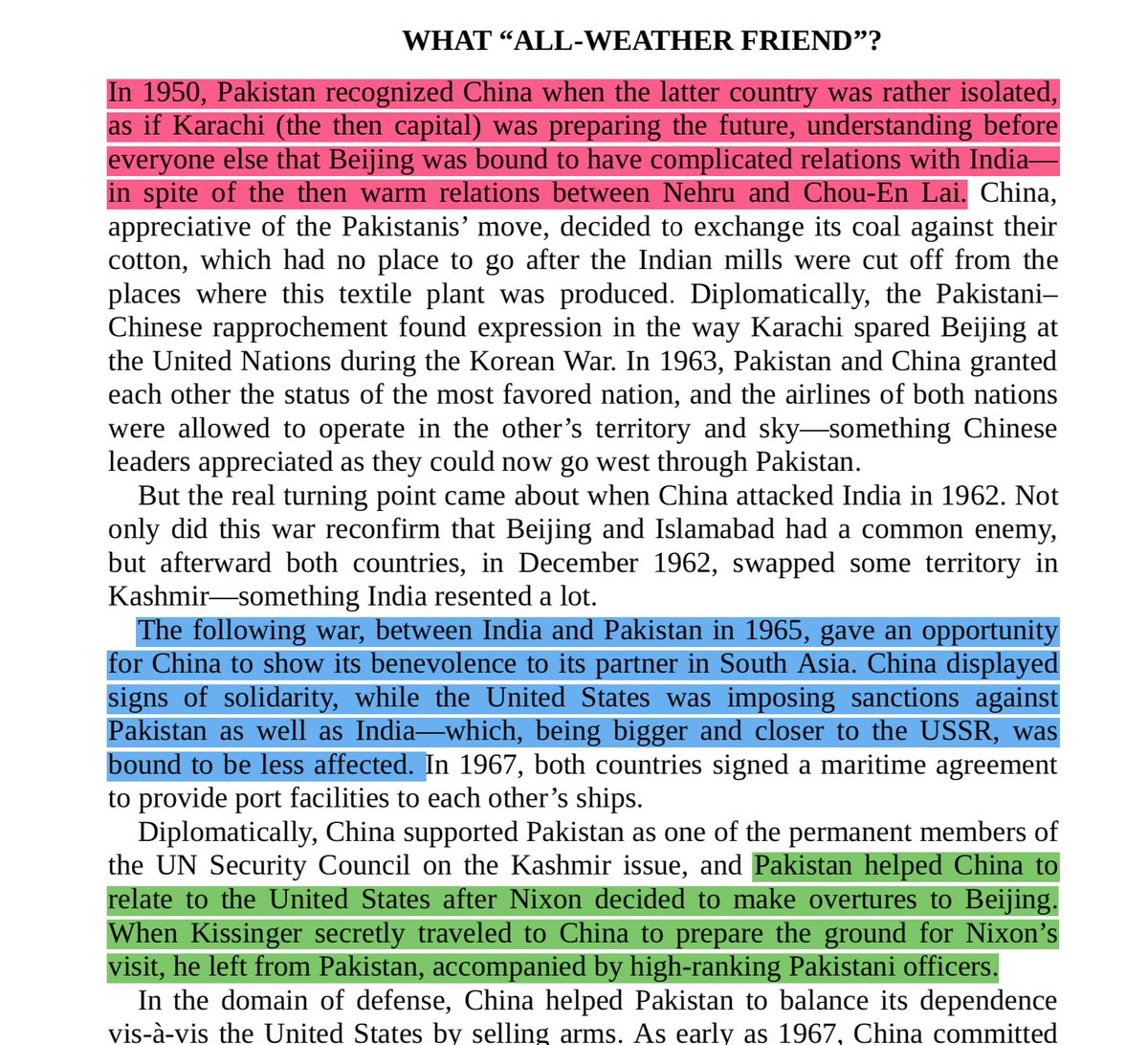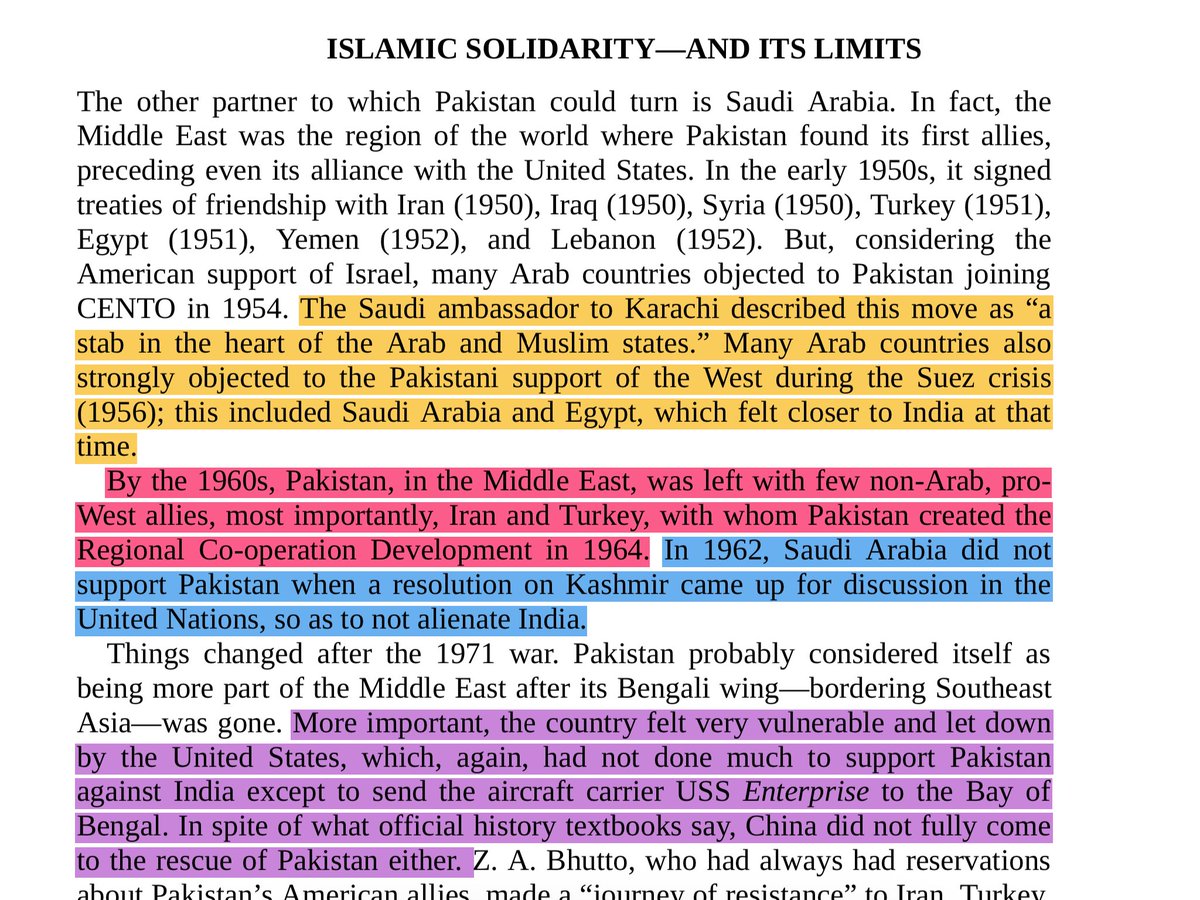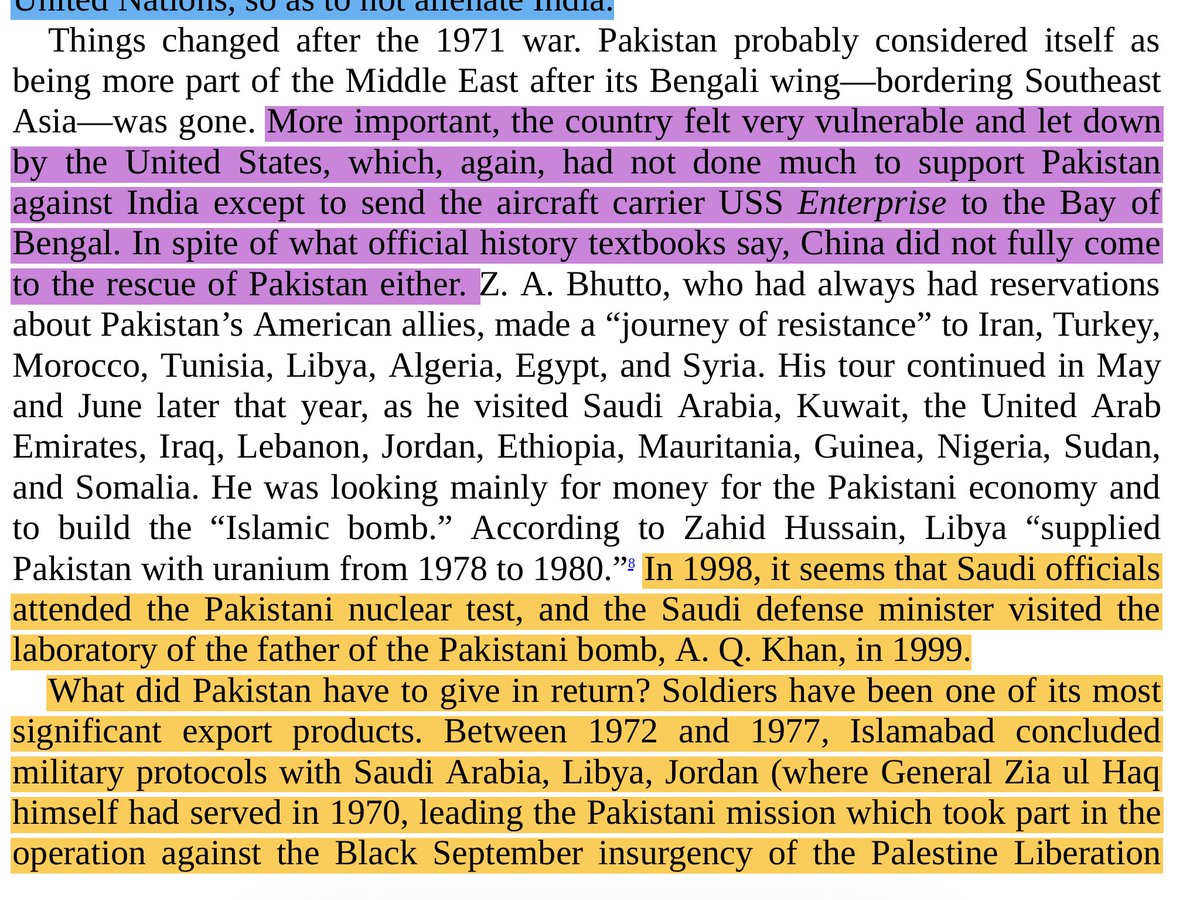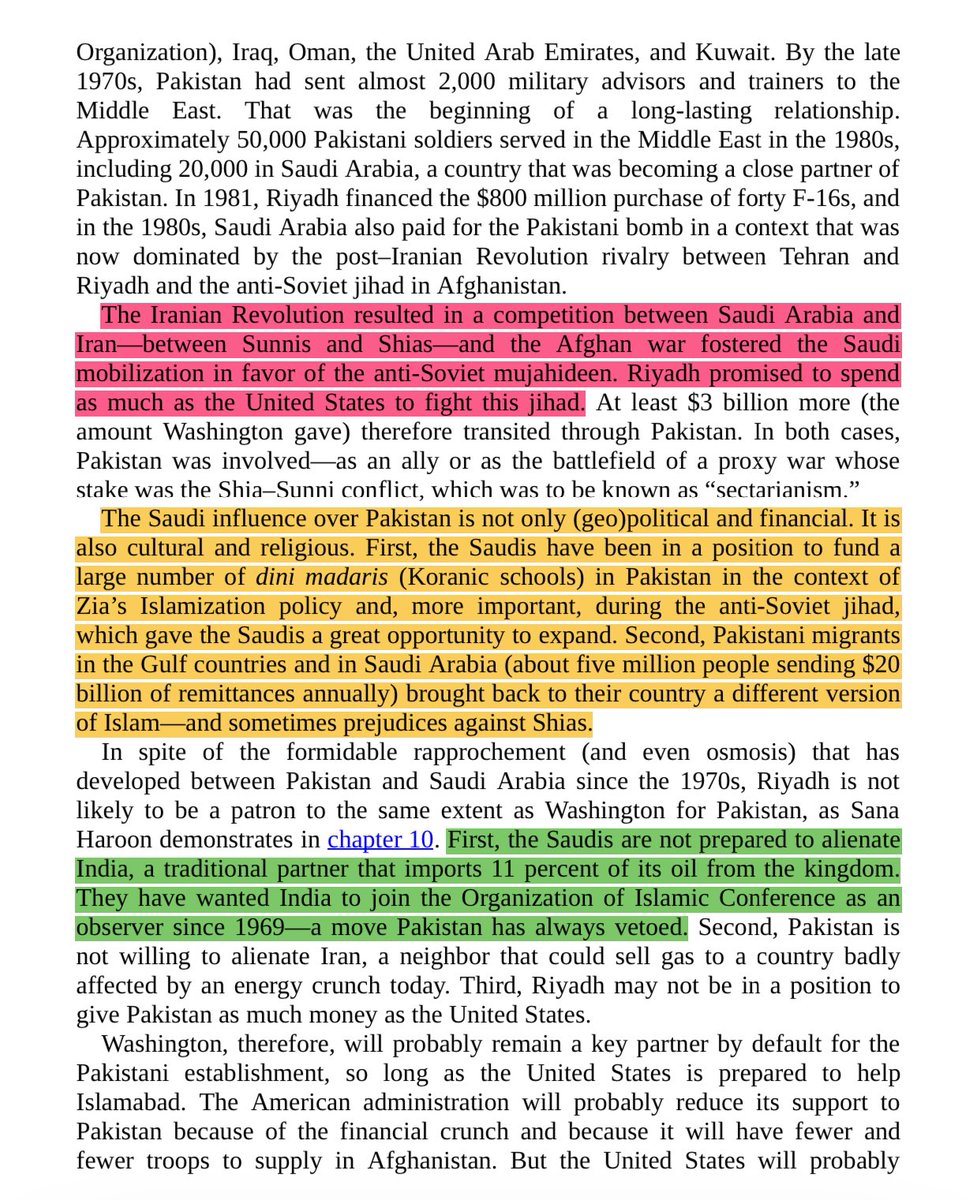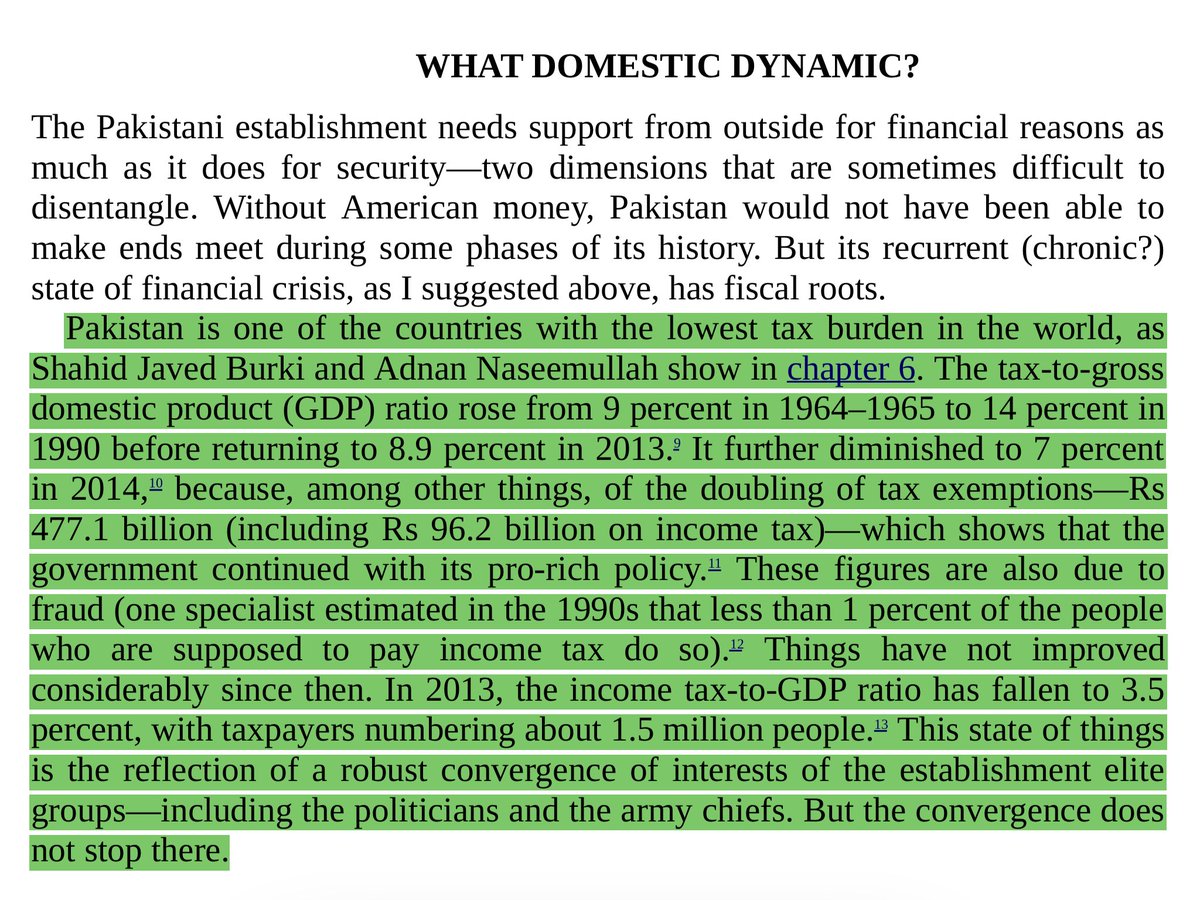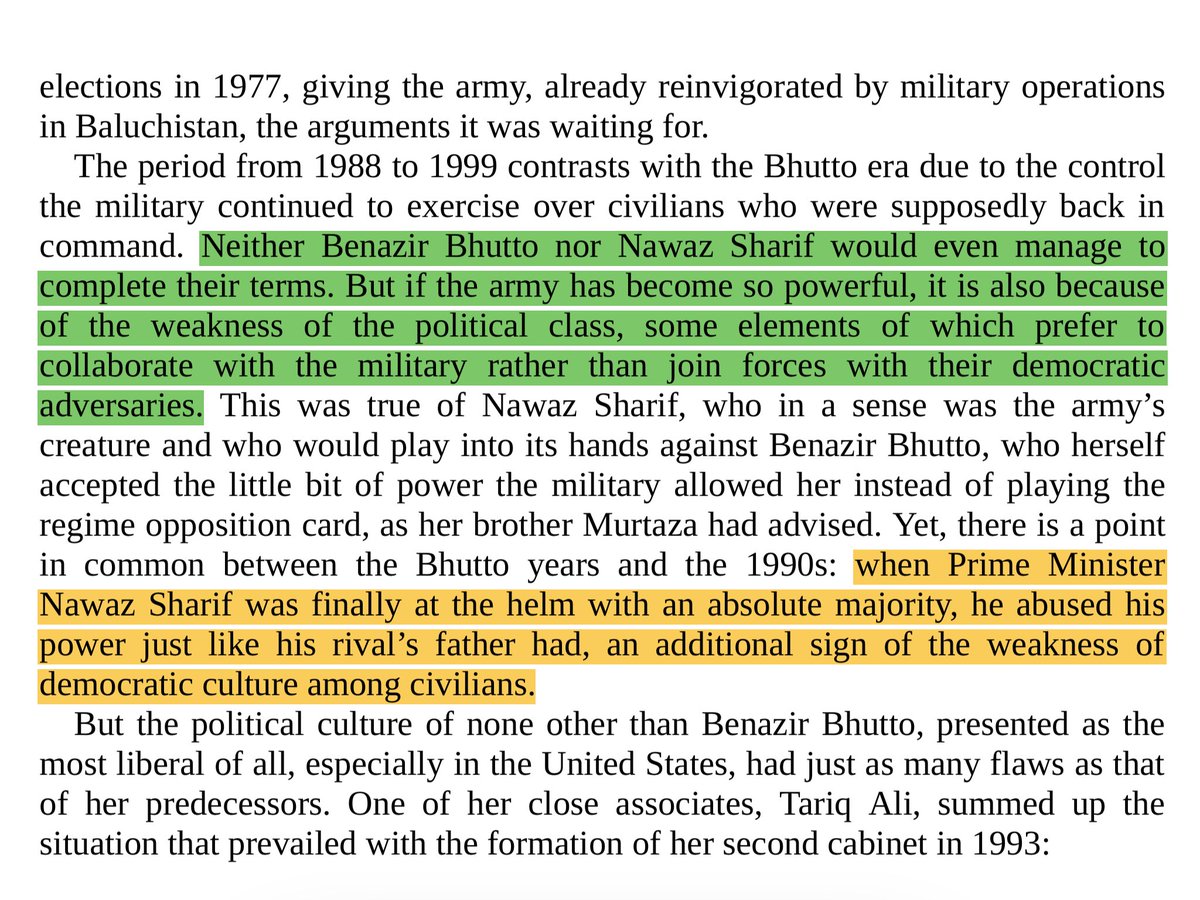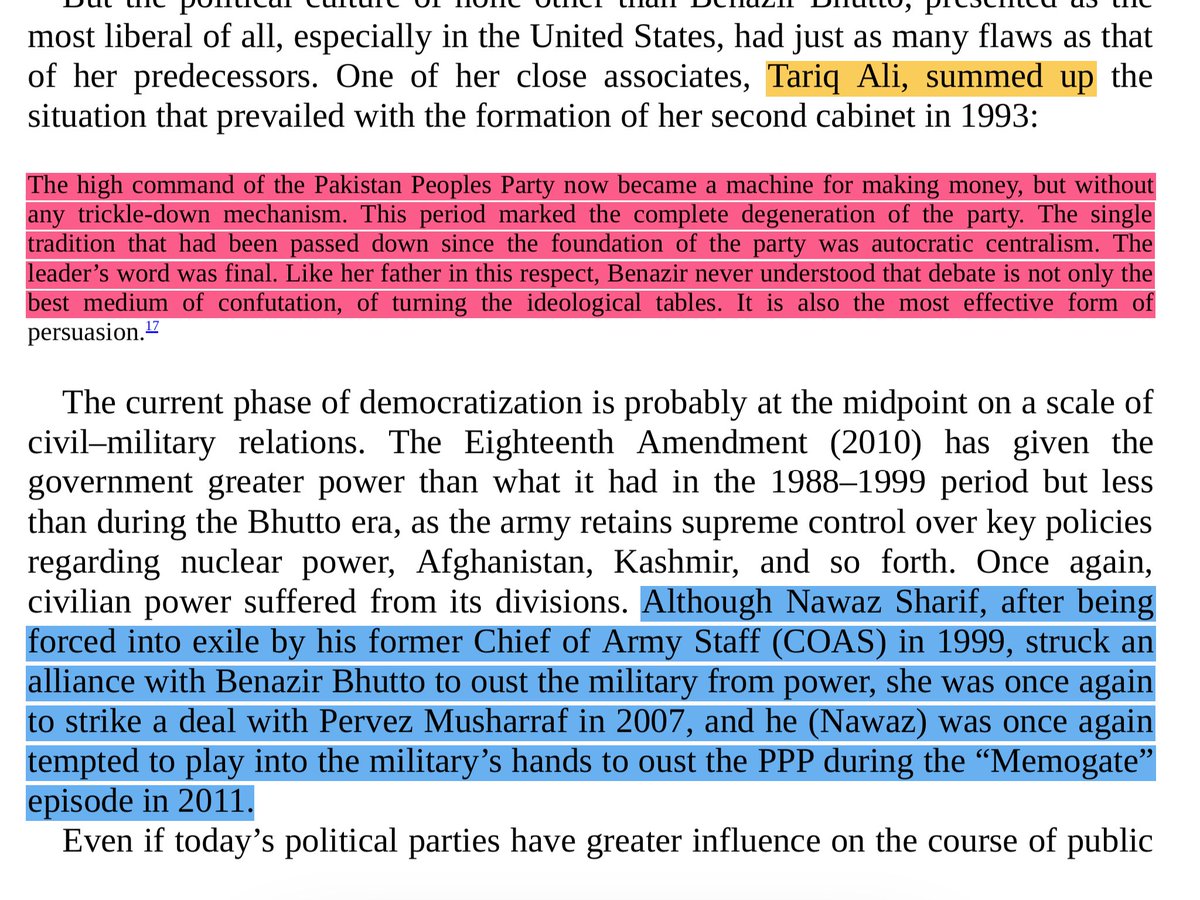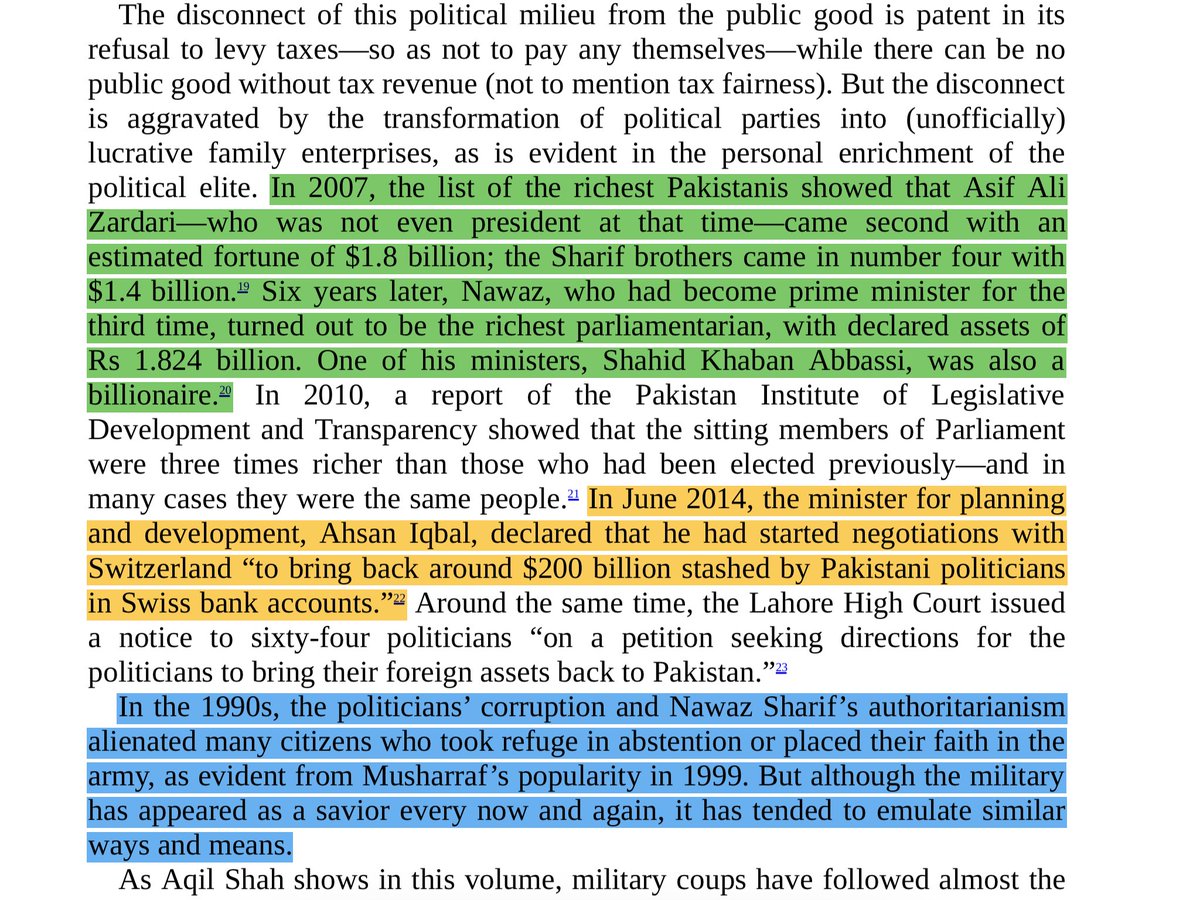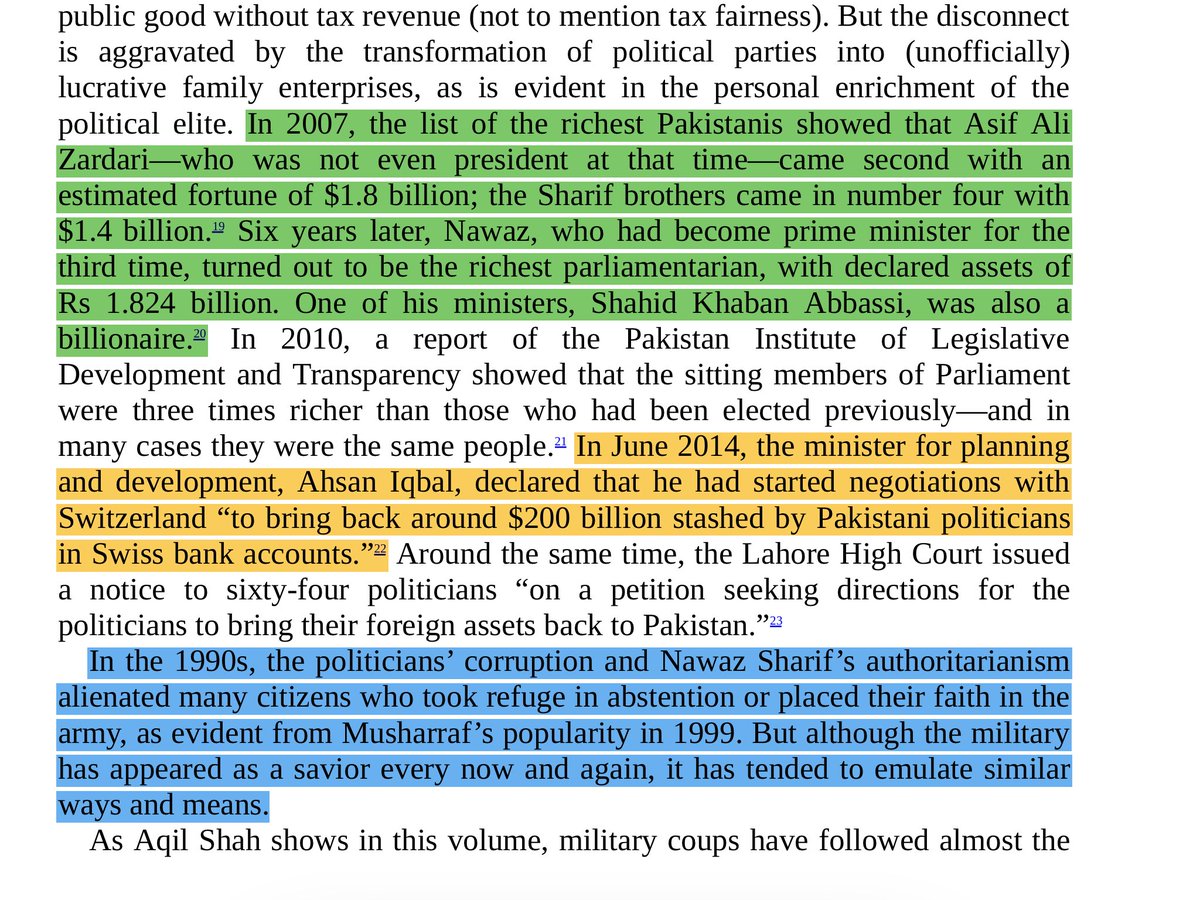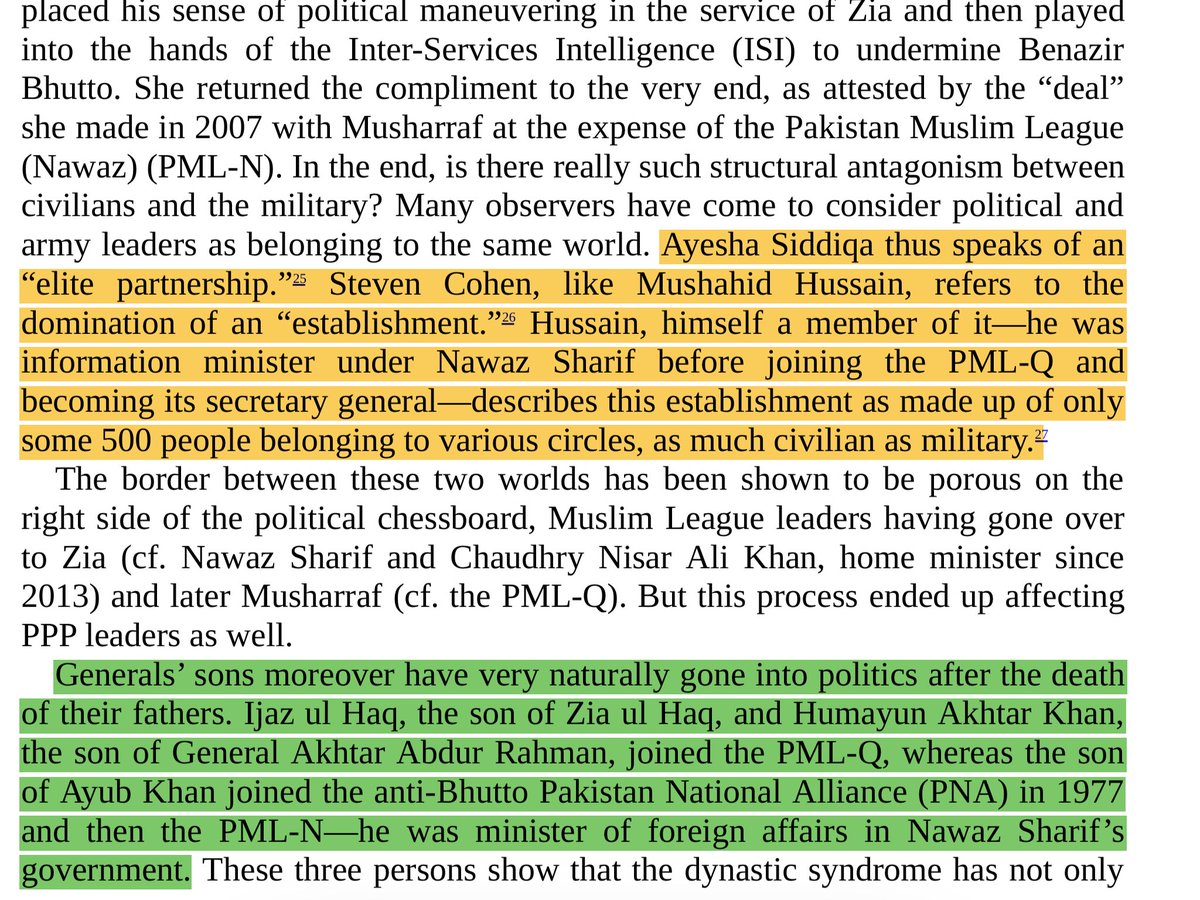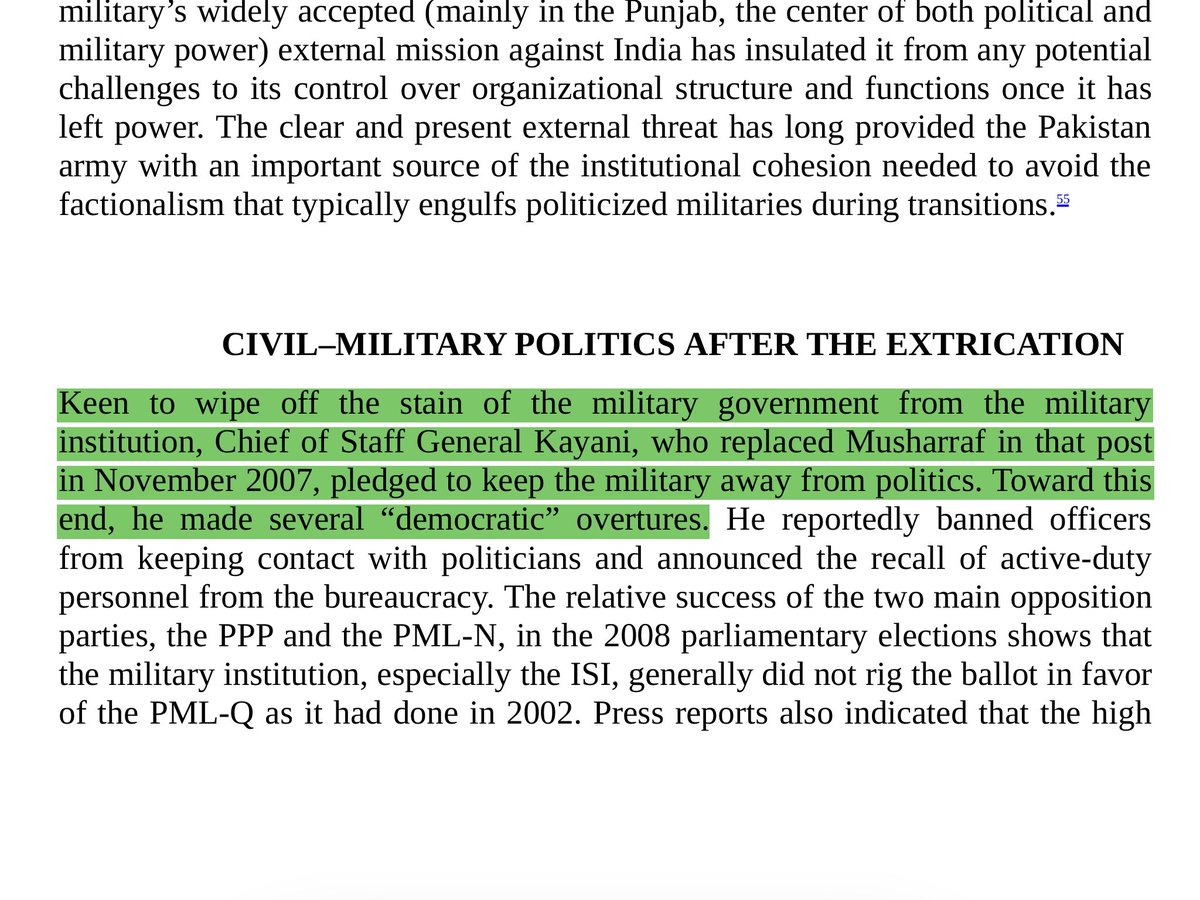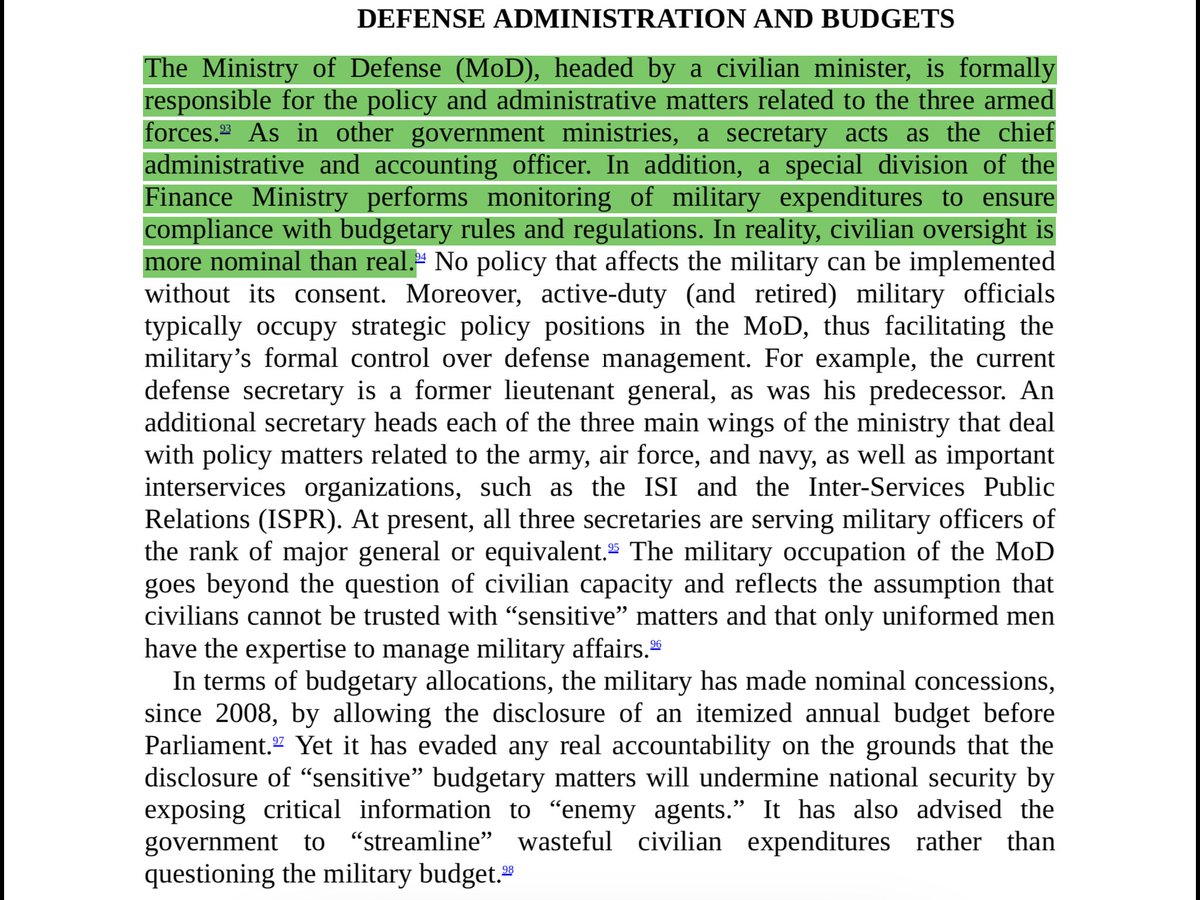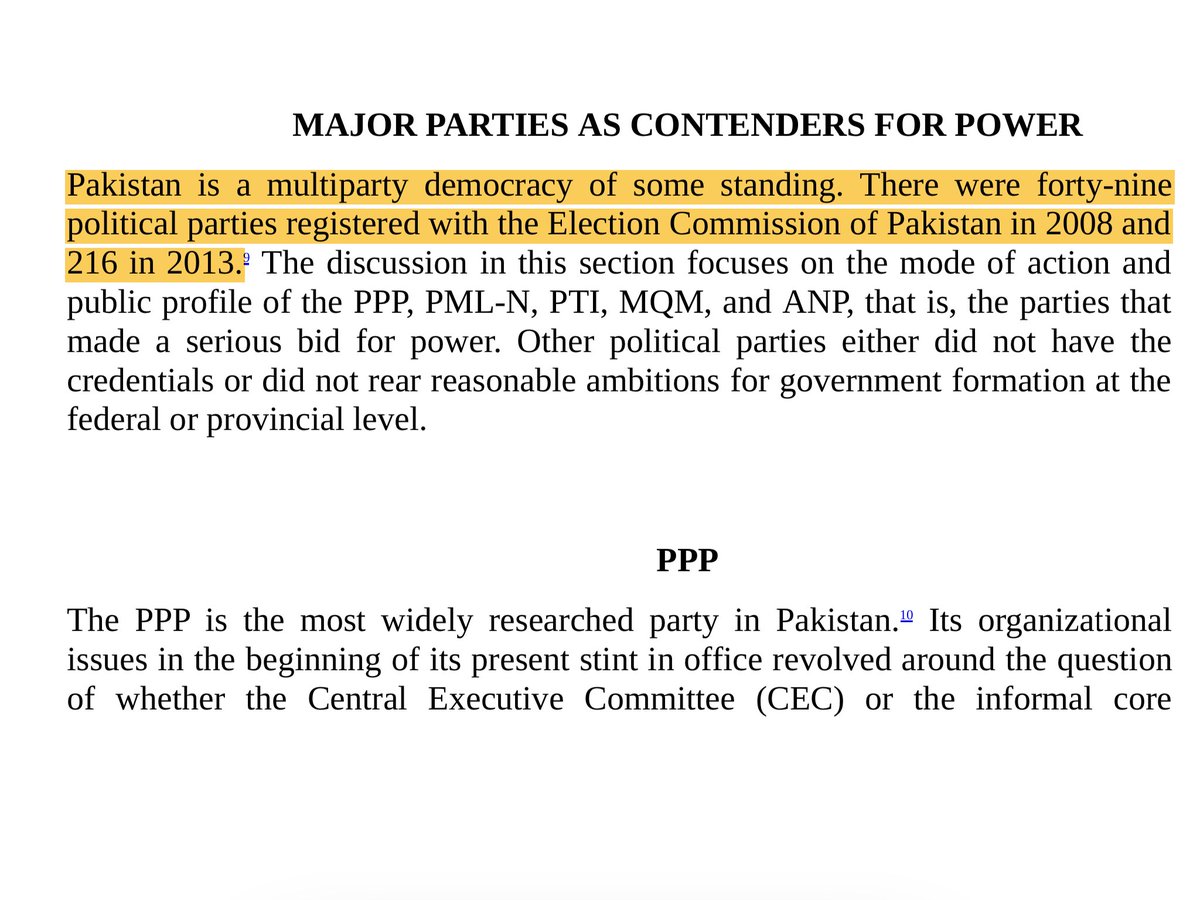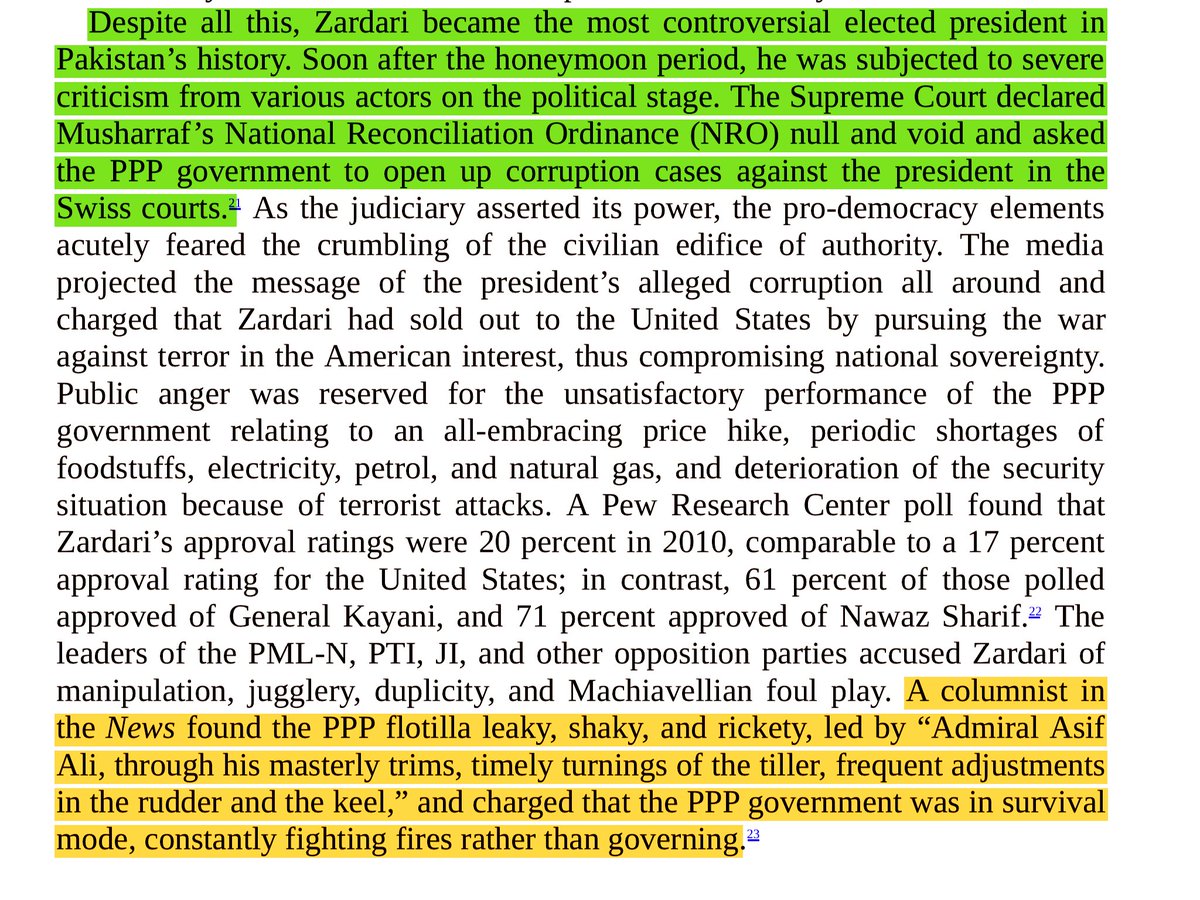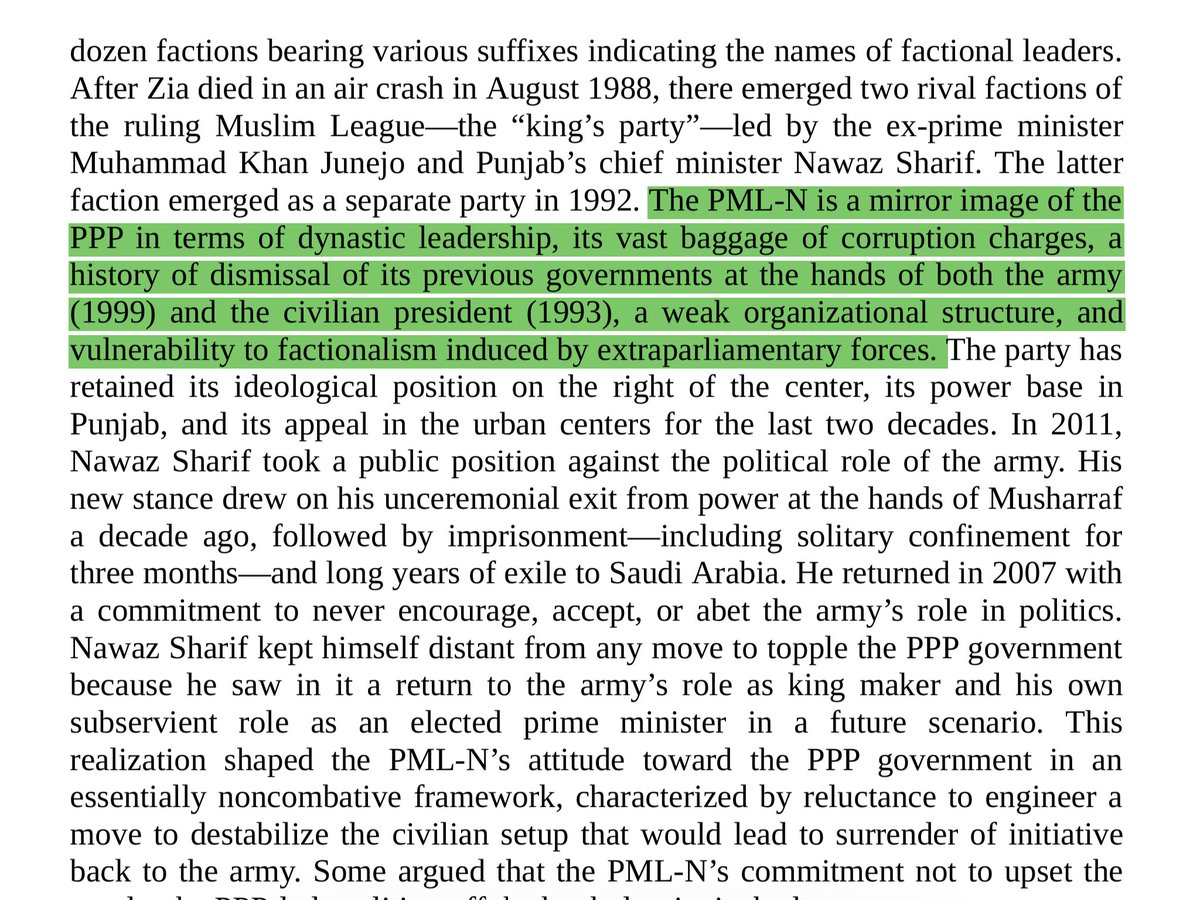—THREAD—
55/100 #100books2020
 https://abs.twimg.com/emoji/v2/... draggable="false" alt="▪️" title="Schwarzes kleines Quadrat" aria-label="Emoji: Schwarzes kleines Quadrat">Title: #PakistanAtTheCrossRoads
https://abs.twimg.com/emoji/v2/... draggable="false" alt="▪️" title="Schwarzes kleines Quadrat" aria-label="Emoji: Schwarzes kleines Quadrat">Title: #PakistanAtTheCrossRoads
 https://abs.twimg.com/emoji/v2/... draggable="false" alt="▪️" title="Schwarzes kleines Quadrat" aria-label="Emoji: Schwarzes kleines Quadrat">Genre: IR/politics
https://abs.twimg.com/emoji/v2/... draggable="false" alt="▪️" title="Schwarzes kleines Quadrat" aria-label="Emoji: Schwarzes kleines Quadrat">Genre: IR/politics
 https://abs.twimg.com/emoji/v2/... draggable="false" alt="▪️" title="Schwarzes kleines Quadrat" aria-label="Emoji: Schwarzes kleines Quadrat">Published: 2016
https://abs.twimg.com/emoji/v2/... draggable="false" alt="▪️" title="Schwarzes kleines Quadrat" aria-label="Emoji: Schwarzes kleines Quadrat">Published: 2016
 https://abs.twimg.com/emoji/v2/... draggable="false" alt="▪️" title="Schwarzes kleines Quadrat" aria-label="Emoji: Schwarzes kleines Quadrat">Length: 338
https://abs.twimg.com/emoji/v2/... draggable="false" alt="▪️" title="Schwarzes kleines Quadrat" aria-label="Emoji: Schwarzes kleines Quadrat">Length: 338
 https://abs.twimg.com/emoji/v2/... draggable="false" alt="▪️" title="Schwarzes kleines Quadrat" aria-label="Emoji: Schwarzes kleines Quadrat">Binding: eBook
https://abs.twimg.com/emoji/v2/... draggable="false" alt="▪️" title="Schwarzes kleines Quadrat" aria-label="Emoji: Schwarzes kleines Quadrat">Binding: eBook
 https://abs.twimg.com/emoji/v2/... draggable="false" alt="▪️" title="Schwarzes kleines Quadrat" aria-label="Emoji: Schwarzes kleines Quadrat">Description: Top international scholars assess Pakistan& #39;s politics & economics & challenges faced by its civil & military leaders.
https://abs.twimg.com/emoji/v2/... draggable="false" alt="▪️" title="Schwarzes kleines Quadrat" aria-label="Emoji: Schwarzes kleines Quadrat">Description: Top international scholars assess Pakistan& #39;s politics & economics & challenges faced by its civil & military leaders.
#bookscache
55/100 #100books2020
#bookscache
Every country strategizes at the crossroads of the national & the international—to say nothing of the transnational—to maximize its resources. But in case of Pakistan,this interaction has reached uncommon proportions,given its geographic size, its population & its nuclear status.
Bhutto supported Hekmatyar & Rabbani against Kabul regime as early as the 1970s. This strategy gained momentum under Zia during war against Soviets. But Benazir Bhutto was PM of Pakistan when the army supported the Taliban and when Islamabad recognized the Taliban regime in 1996.
Complex of Pakistani leaders vis-à-vis India emerged as early as 1947, partly because they were convinced that New Delhi rulers had not resigned themselves to Partition & craved for what Hindu nationalists called Akhand Bharat—a (re)unified India. Jinnah,too,expressed in 1947.
Indeed, as late as 1963, an editorial of the newspaper founded by Jinnah, Dawn, emphasized that “If the main concern of the Christian West is the containment of Chinese Communism, main concern of Muslim Pakistan is the containment of militarist and militant Hinduism.” @dawn_com
Pakistan helped China to relate to the United States after Nixon decided to make overtures to Beijing. When Kissinger secretly traveled to China to prepare the ground for Nixon’s visit, he left from Pakistan, accompanied by high-ranking Pakistani officers.
The Saudi ambassador to Karachi described this move as “a stab in the heart of the Arab and Muslim states. In 1962, Saudi Arabia did not support Pakistan when a resolution on Kashmir came up for discussion in the United Nations, so as to not alienate India.
What did Pakistan have to give in return? Soldiers have been one of its most significant export products. Between 1972 and 1977, Islamabad concluded military protocols with Saudi Arabia, Libya, Jordan (where General Zia ul Haq himself had served in 1970, leading the Pak mission.
The Saudi influence over Pakistan is not only (geo)political and financial. It is also cultural and religious. Pakistani migrants in the Gulf countries and in Saudi Arabia brought back to their country a different version of Islam—and sometimes prejudices against Shias.
Pakistan is one of the countries with the lowest tax burden in the world. The tax-to-gross domestic product (GDP) ratio rose from 9 percent in 1964–1965 to 14 percent in 1990 before returning to 8.9 percent in 2013.
When Prime Minister Nawaz Sharif was finally at the helm with an absolute majority, he abused his power just like his rival’s father had, an additional sign of the weakness of democratic culture among civilians.
The high command of the Pakistan Peoples Party now became a machine for making money, but without
any trickle-down mechanism. This period marked the complete degeneration of the party. The leader’s word was final. Like her father in this respect...
any trickle-down mechanism. This period marked the complete degeneration of the party. The leader’s word was final. Like her father in this respect...
In 2007, Asif Ali Zardari—estimated fortune of $1.8 billion; the Sharif brothers came in number four with $1.4 billion. Six years later, Nawaz, who had become PM had declared assets of Rs 1.824 billion. One of his ministers, Shahid Khaban Abbassi, was also a billionaire.
@betterpakistan Honorable sir, if you could comment please...
In June 2014, the minister for planning and development, Ahsan Iqbal, declared that he had started negotiations with Switzerland “to bring back around $200 billion stashed by Pakpoliticians in Swiss bank accounts.”
In June 2014, the minister for planning and development, Ahsan Iqbal, declared that he had started negotiations with Switzerland “to bring back around $200 billion stashed by Pakpoliticians in Swiss bank accounts.”
@iamthedrifter speaks of an “elite partnership.” Steven Cohen, like Mushahid Hussain,refers to the domination of an “establishment.”He, himself a member of it—describes this establishment as made up of only some 500 people belonging to various circles,as much civilian as military
Keen to wipe off the stain of the military government from the military institution, Chief of Staff General Kayani, who replaced Musharraf in that post in November 2007, pledged to keep the military away from politics. Toward this end, he made several “democratic” overtures.
The Ministry of Defense (MoD), headed by a civilian minister, is formally responsible for the policy and administrative matters related to the three armed forces.93 As in other government ministries, a secretary acts as the chief administrative and accounting officer.
Pakistan is a multiparty democracy of some standing. There were forty-nine political parties registered with the Election Commission of Pakistan in 2008 and 216 in 2013.
A columnist in the News found the PPP flotilla leaky,shaky,&rickety,led by Admiral Asif Ali,through his masterly trims,timely turnings of tiller,frequent adjustments in rudder&the keel,&charged PPP government was in survival mode,constantly fighting fires rather than governing.

 Read on Twitter
Read on Twitter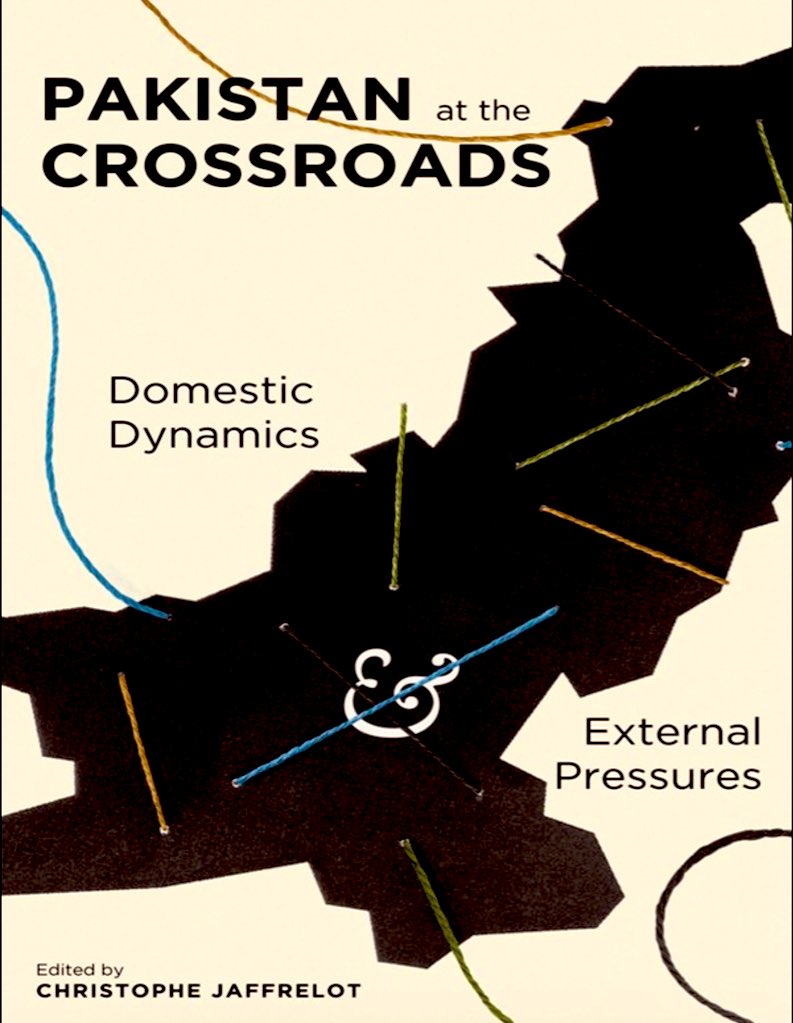 Title: #PakistanAtTheCrossRoadshttps://abs.twimg.com/emoji/v2/... draggable="false" alt="▪️" title="Schwarzes kleines Quadrat" aria-label="Emoji: Schwarzes kleines Quadrat">Genre: IR/politicshttps://abs.twimg.com/emoji/v2/... draggable="false" alt="▪️" title="Schwarzes kleines Quadrat" aria-label="Emoji: Schwarzes kleines Quadrat">Published: 2016https://abs.twimg.com/emoji/v2/... draggable="false" alt="▪️" title="Schwarzes kleines Quadrat" aria-label="Emoji: Schwarzes kleines Quadrat">Length: 338https://abs.twimg.com/emoji/v2/... draggable="false" alt="▪️" title="Schwarzes kleines Quadrat" aria-label="Emoji: Schwarzes kleines Quadrat">Binding: eBookhttps://abs.twimg.com/emoji/v2/... draggable="false" alt="▪️" title="Schwarzes kleines Quadrat" aria-label="Emoji: Schwarzes kleines Quadrat">Description: Top international scholars assess Pakistan& #39;s politics & economics & challenges faced by its civil & military leaders. #bookscache" title="—THREAD—55/100 #100books2020https://abs.twimg.com/emoji/v2/... draggable="false" alt="▪️" title="Schwarzes kleines Quadrat" aria-label="Emoji: Schwarzes kleines Quadrat">Title: #PakistanAtTheCrossRoadshttps://abs.twimg.com/emoji/v2/... draggable="false" alt="▪️" title="Schwarzes kleines Quadrat" aria-label="Emoji: Schwarzes kleines Quadrat">Genre: IR/politicshttps://abs.twimg.com/emoji/v2/... draggable="false" alt="▪️" title="Schwarzes kleines Quadrat" aria-label="Emoji: Schwarzes kleines Quadrat">Published: 2016https://abs.twimg.com/emoji/v2/... draggable="false" alt="▪️" title="Schwarzes kleines Quadrat" aria-label="Emoji: Schwarzes kleines Quadrat">Length: 338https://abs.twimg.com/emoji/v2/... draggable="false" alt="▪️" title="Schwarzes kleines Quadrat" aria-label="Emoji: Schwarzes kleines Quadrat">Binding: eBookhttps://abs.twimg.com/emoji/v2/... draggable="false" alt="▪️" title="Schwarzes kleines Quadrat" aria-label="Emoji: Schwarzes kleines Quadrat">Description: Top international scholars assess Pakistan& #39;s politics & economics & challenges faced by its civil & military leaders. #bookscache" class="img-responsive" style="max-width:100%;"/>
Title: #PakistanAtTheCrossRoadshttps://abs.twimg.com/emoji/v2/... draggable="false" alt="▪️" title="Schwarzes kleines Quadrat" aria-label="Emoji: Schwarzes kleines Quadrat">Genre: IR/politicshttps://abs.twimg.com/emoji/v2/... draggable="false" alt="▪️" title="Schwarzes kleines Quadrat" aria-label="Emoji: Schwarzes kleines Quadrat">Published: 2016https://abs.twimg.com/emoji/v2/... draggable="false" alt="▪️" title="Schwarzes kleines Quadrat" aria-label="Emoji: Schwarzes kleines Quadrat">Length: 338https://abs.twimg.com/emoji/v2/... draggable="false" alt="▪️" title="Schwarzes kleines Quadrat" aria-label="Emoji: Schwarzes kleines Quadrat">Binding: eBookhttps://abs.twimg.com/emoji/v2/... draggable="false" alt="▪️" title="Schwarzes kleines Quadrat" aria-label="Emoji: Schwarzes kleines Quadrat">Description: Top international scholars assess Pakistan& #39;s politics & economics & challenges faced by its civil & military leaders. #bookscache" title="—THREAD—55/100 #100books2020https://abs.twimg.com/emoji/v2/... draggable="false" alt="▪️" title="Schwarzes kleines Quadrat" aria-label="Emoji: Schwarzes kleines Quadrat">Title: #PakistanAtTheCrossRoadshttps://abs.twimg.com/emoji/v2/... draggable="false" alt="▪️" title="Schwarzes kleines Quadrat" aria-label="Emoji: Schwarzes kleines Quadrat">Genre: IR/politicshttps://abs.twimg.com/emoji/v2/... draggable="false" alt="▪️" title="Schwarzes kleines Quadrat" aria-label="Emoji: Schwarzes kleines Quadrat">Published: 2016https://abs.twimg.com/emoji/v2/... draggable="false" alt="▪️" title="Schwarzes kleines Quadrat" aria-label="Emoji: Schwarzes kleines Quadrat">Length: 338https://abs.twimg.com/emoji/v2/... draggable="false" alt="▪️" title="Schwarzes kleines Quadrat" aria-label="Emoji: Schwarzes kleines Quadrat">Binding: eBookhttps://abs.twimg.com/emoji/v2/... draggable="false" alt="▪️" title="Schwarzes kleines Quadrat" aria-label="Emoji: Schwarzes kleines Quadrat">Description: Top international scholars assess Pakistan& #39;s politics & economics & challenges faced by its civil & military leaders. #bookscache" class="img-responsive" style="max-width:100%;"/>
